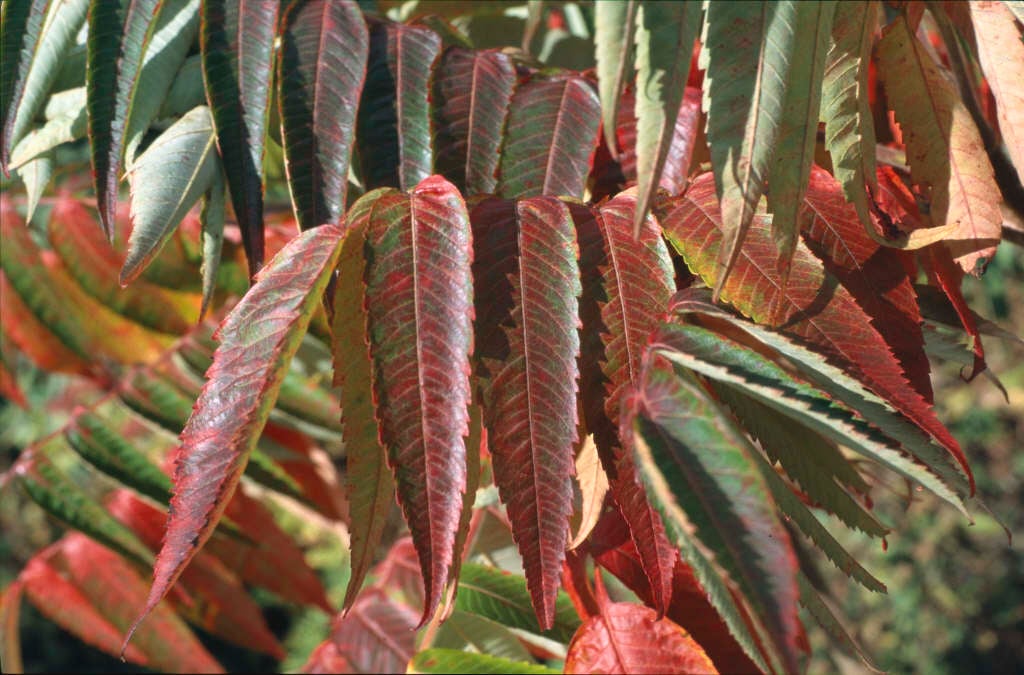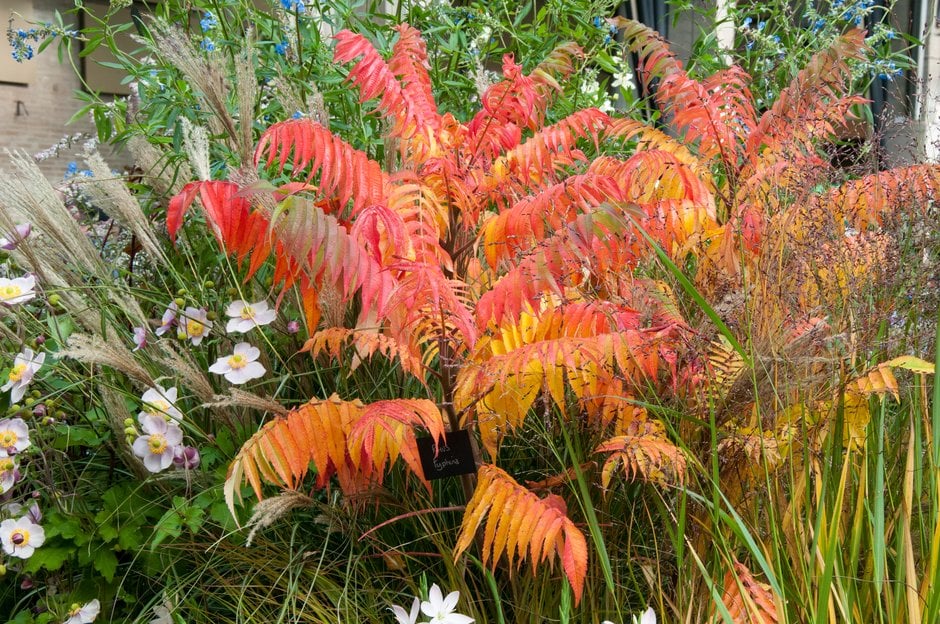Rhus typhina
stag's horn sumach
A large suckering deciduous shrub to 6m, the red-hairy stems with large pinnate leaves turning red and orange in autumn. Dioecious, with yellow-green flower clusters, followed on female plants by dense crimson fruiting heads
Other common names
green-flowered sumachstaghorn sumac
see morevelvet sumac
vinegar tree
Virginian sumach
Synonyms
Rhus hirtaSize
Ultimate height
4–8 metresTime to ultimate height
10–20 yearsUltimate spread
4–8 metresGrowing conditions
Moisture
Moist but well–drainedpH
Acid, Alkaline, NeutralColour & scent
| Stem | Flower | Foliage | Fruit | |
| Spring | Green | |||
|---|---|---|---|---|
| Summer | Green Yellow | Green | ||
| Autumn | Orange Red | Red | ||
| Winter |
Position
- Full sun
Aspect
South–facing or West–facing or East–facing
Exposure
Exposed or Sheltered Hardiness
H6Botanical details
- Family
- Anacardiaceae
- Native to GB / Ireland
- No
- Foliage
- Deciduous
- Habit
- Suckering
- Genus
Rhus can be deciduous or evergreen shrubs or trees with simple, pinnate or palmately-divided leaves often colouring brilliantly in autumn, and inconspicuous yellow flowers in spring or summer, followed by small, spherical red fruits in dense clusters
- Name status
Correct
- Plant range
- Eastern North America
How to grow
Cultivation
Grow in moist but well-drained soil in full sun to obtain best autumn colour. Suckering in habit and has the potential to become a nuisance
Propagation
Propagate by seed or semi-hardwood cuttings
Suggested planting locations and garden types
- Coastal
- Cottage and informal garden
- Low Maintenance
- Flower borders and beds
Pruning
Pruning group 7; sucker removal may be necessary, in winter
Pests
Generally pest-free
Diseases
May be susceptible to honey fungus, coral spot and Verticillium wilt
Love gardening
Sign up to receive regular gardening tips, inspiration, offers and more
View our Privacy Policy
Get involved
The Royal Horticultural Society is the UK’s leading gardening charity. We aim to enrich everyone’s life through plants, and make the UK a greener and more beautiful place.

